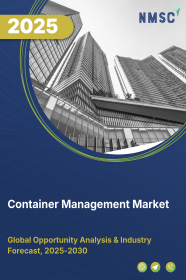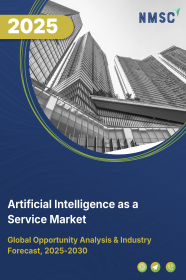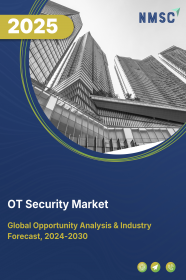
Container Management Market by Service (Container Monitoring & Security, Container Data Management & Orchestration, Container Networking, Container Support & Maintenance, and Other Services), by Deployment (On-premises and Cloud-based), by Organization Size (Small and Medium Enterprises (SMEs) and Large Enterprises), and by End-User (IT and Telecommunications, Healthcare, Retail and E-commerce, Manufacturing, and Finance & Banking) – Global Opportunity Analysis and Industry Forecast 2025-2030
US Tariff Impact on Container Management Market
Trump Tariffs Are Reshaping Global Business
Industry Overview
The global Container Management Market size was valued at USD XX billion in 2024 and is predicted to reach USD XX billion by the end of 2025. The industry is predicted to reach USD 46.24 billion by 2030 with a CAGR of XX% from 2025-2030. The market is expanding due to growing demand for faster software development, application modernization, and improved scalability.
Containers help businesses transition from legacy systems to more flexible microservices. As container environments grow more complex, organizations need robust solutions to manage deployment, scaling, and monitoring efficiently. Cost efficiency and better resource utilization also drive adoption. However, security concerns remain a restraint, especially in regulated sectors. On the other hand, the integration of AI in container management solutions presents strong growth opportunities for vendors in the market.
Rising Application Modernization Drives the Market Expansion
The increasing need for faster software development and deployment cycles is a significant force propelling the container management market demand. Application modernization, the process of updating older applications to newer technologies and architectures, is a critical driver for businesses seeking agility and competitive advantage. Containers, lightweight and portable units that package applications and their dependencies, are instrumental in this transformation. They enable faster iteration, easier deployment across different environments, and improved scalability.
For instance, businesses looking to modernize monolithic applications break them down into microservices, which are then deployed and managed as individual containers. This approach allows for independent scaling and updates of specific application components, leading to faster release cycles and improved resilience. The growth potential of the container platform management industry is directly linked to the ongoing efforts of organizations to modernize their application portfolios.
Increasing Container Complexity and Need for Scalable Management Solutions Fuels the Market Growth
The organizations adopt containerization and run more containers across complex IT environments, the need for strong container management solutions becomes increasingly important. Managing the full lifecycle of many containers, including deployment, scaling, networking, and monitoring, quickly becomes difficult without the right tools. This growing complexity is a key factor driving the container platform management market expansion.
Platforms like Kubernetes provide the automation and orchestration needed to handle containers at scale. They help streamline operations, improve resource utilization, and ensure system reliability. As more companies move their containerized applications into production, the demand for effective container platform management software continues to grow.
Cost Efficiency and Optimal Resource Utilization Propel the Industry Growth
The drive for cost efficiency and optimal resource utilization is another compelling factor fueling the adoption of container management. Containers are inherently lightweight and share the underlying operating system kernel, leading to lower overhead compared to traditional virtual machines. This allows organizations to run more applications on the same infrastructure, resulting in significant cost savings.
Container platform management further enhances this efficiency by providing tools for resource allocation, scaling based on demand, and monitoring resource consumption. By dynamically adjusting resource allocation and ensuring that infrastructure is used effectively, businesses reduce operational expenses and maximize the return on their IT investments. This economic advantage contributes significantly to the growth potential of the container platform management industry.
Security Concerns Hinder the Widespread Adoption of Container Technologies
Security concerns remain a significant restraint in the widespread adoption of container technologies. The portability and interconnectedness of containers introduce new attack vectors if not properly secured. Vulnerabilities in container images, misconfigurations, and insecure network policies are potential risks that organizations must address.
Ensuring the security of the entire container lifecycle, from build to runtime, requires specialized tools and expertise. This concern slows down adoption, particularly in highly regulated industries, as organizations need to be confident in the security posture of their containerized environments. Addressing these security challenges is crucial for unlocking the full market potential of container management.
Incorporation of AI in Container Management Solutions Presents Future Growth Opportunities
The integration of artificial intelligence (AI) into container management solutions is creating significant growth opportunities by enhancing platforms with predictive scaling, anomaly detection, and automated optimization, addressing the complexity of containerized environments in cloud-native and hybrid cloud deployments.
In March 2025, CloudSphere Technologies launched IntelliKube, an AI-powered container management platform leveraging Large Language Models (LLMs) and the Intel Core Ultra 7 Processor to deliver intelligent workload optimization, predictive resource scaling, and automated security for Kubernetes and Docker environments. This platform streamlines deployments, enhances efficiency, and supports edge computing and IoT, enabling enterprises and SMEs to reduce costs and improve performance, thus driving market expansion by attracting a diverse customer base seeking scalable, secure solutions.
Market Segmentation and Scope of Study
The container management market report is segmented by service, deployment, organization size, end user, and region. On the basis of services, the market is classified into container monitoring & security, container data management & orchestration, container networking, container support & maintenance, and other services. On the basis of deployment, the market is divided into on-premises and cloud-based. On the basis of organization size, the market is categorized into small and medium enterprises (SMEs) and large enterprises. On the basis of end user, the market is segmented into IT and telecommunications, healthcare, retail and e-commerce, manufacturing, and finance and banking. Regional breakdown and analysis of each of the aforesaid segments includes regions comprising North America, Europe, Asia-Pacific, and RoW.
Geographical Analysis
North America dominates the container management market share, leveraging its robust technological infrastructure and leadership in cloud-native solutions. The U.S. is at the forefront, with tech giants like Amazon Web Services (AWS) and Google Cloud driving advancements in container orchestration platforms such as Kubernetes and Docker. For example, a major U.S. retailer utilized Azure Kubernetes Service (AKS) to streamline its e-commerce platform, significantly enhancing operational efficiency. The region’s growth is supported by substantial investments in research and development and a highly skilled workforce, making it a hub for container platform management innovation.
Europe plays a pivotal role in the market, with countries like Germany, the UK, and the Netherlands leading through digital transformation and regulatory compliance. The region excels in adopting containerization for industries such as manufacturing and logistics, with tools like Red Hat OpenShift enabling companies to modernize operations. For instance, a German automotive giant implemented OpenShift to optimize its supply chain, boosting efficiency. Europe’s emphasis on data security, driven by regulations like GDPR, has increased demand for secure container platform management solutions, fostering trust in the ecosystem.
Asia-Pacific stands out as a rapidly expanding region in the container management market, driven by the booming IT sectors in China, India, and Japan. The region’s growth is fueled by widespread adoption of cloud-native technologies and government-led digital initiatives, such as India’s Digital India program. For example, India’s e-commerce leader Flipkart leveraged Kubernetes to enhance its microservices architecture, improving scalability for millions of users. China’s tech giants, like Alibaba Cloud, are also advancing container orchestration, supporting the region’s digital economy.
The Rest of the World, encompassing Latin America, the Middle East, and Africa, represents an emerging segment of the Container Management Market with growing opportunities. Latin America, led by Brazil, is seeing increased container adoption in logistics and retail, with companies embracing cloud-native solutions to enhance competitiveness. In the Middle East, the UAE is driving demand through smart city initiatives, such as Dubai’s use of AWS ECS for urban mobility applications. Africa, while lagging due to connectivity and expertise constraints, shows potential in markets like South Africa.
Strategic Innovations Adopted by Key Players
Key players in the global container management industry, including AWS, Microsoft Azure, Google Cloud, Red Hat, and IBM, are driving market trends through strategic advancements, major product launches, and innovative solutions to bolster their market share. AWS recently launched Amazon ECS Anywhere, enabling container platform management across hybrid environments, and introduced AWS Copilot in 2024, a CLI tool to streamline containerized application deployment.
Microsoft Azure debuted Azure Container Apps in 2024, simplifying serverless container deployments, while Google Cloud enhanced Anthos for multi-cloud orchestration, with a global retailer adopting it to unify its cloud strategy. Red Hat OpenShift’s latest release improved AI-driven automation, helping a European bank streamline deployment. IBM advanced its Cloud Kubernetes Service with Watson AI integration, adopted by a U.S. healthcare provider for efficient data processing. Challenges like complex Kubernetes management and cybersecurity risks, such as a 2023 container misconfiguration breach at a U.S. retailer, persist. Opportunities in Containers-as-a-Service (CaaS) and sustainable solutions, like Azure’s energy-efficient AKS features launched in 2024, offer significant growth potential.
Key Benefits
-
The report provides quantitative analysis and estimations of the sector from 2025 to 2030, which assists in identifying the prevailing container management market opportunities.
-
The study comprises a deep dive analysis of the current and future container management market trends to depict prevalent investment pockets in the industry.
-
The report provides information related to key drivers, restraints, and opportunities and their impact on the market.
-
Competitive analysis of the players, along with their market share, is provided in the report.
-
SWOT analysis and Porter's Five Forces model are elaborated in the study.
-
Value chain analysis in the market study provides a clear picture of the roles of stakeholders.
Container Management Market Key Segments
By Services
-
Container Monitoring & Security
-
Container Data Management & Orchestration
-
Container Networking
-
Container Support & Maintenance
-
Other Services
By Deployment
-
On-premises
-
Cloud-based
By Organization Size
-
Small and Medium Enterprises (SMEs)
-
Large Enterprises
By End-User
-
IT and Telecommunications
-
Healthcare
-
Retail and E-commerce
-
Manufacturing
-
Finance and Banking
By Region
-
North America
-
The U.S.
-
Canada
-
Mexico
-
-
Europe
-
The UK
-
Germany
-
France
-
Italy
-
Spain
-
Denmark
-
Netherlands
-
Finland
-
Sweden
-
Norway
-
Russia
-
Rest of Europe
-
-
Asia-Pacific
-
China
-
Japan
-
India
-
South Korea
-
Australia
-
Indonesia
-
Singapore
-
Taiwan
-
Thailand
-
Rest of Asia-Pacific
-
-
RoW
-
Latin America
-
Middle East
-
Africa
-
Key Players
-
Docker, Inc.
-
Google Kubernetes Engine (GKE)
-
Red Hat, Inc.
-
Amazon Web Services (AWS)
-
IBM Cloud Kubernetes Service
-
Rancher Labs
-
Microsoft Azure
-
Joyent Inc.
-
Spectro Cloud
-
SUSE
-
VMware
-
Mirantis, Inc.
-
D2iQ, Inc.
-
Portainer
REPORT SCOPE AND SEGMENTATION:
|
Parameters |
Details |
|
Market Size in 2024 |
USD XYZ Billion |
|
Revenue Forecast in 2030 |
USD XYZ Billion |
|
Growth Rate |
CAGR of XYZ% from 2025 to 2030 |
|
Analysis Period |
2024–2030 |
|
Base Year Considered |
2024 |
|
Forecast Period |
2025–2030 |
|
Market Size Estimation |
Billion (USD) |
|
Growth Factors |
|
|
Countries Covered |
28 |
|
Companies Profiled |
15 |
|
Market Share |
Available for 10 companies |
|
Customization Scope |
Free customization (equivalent to up to 80 working hours of analysts) after purchase. Addition or alteration to country, regional, and segment scope. |
|
Pricing and Purchase Options |
Avail customized purchase options to meet your exact research needs. |

















 Speak to Our Analyst
Speak to Our Analyst





















